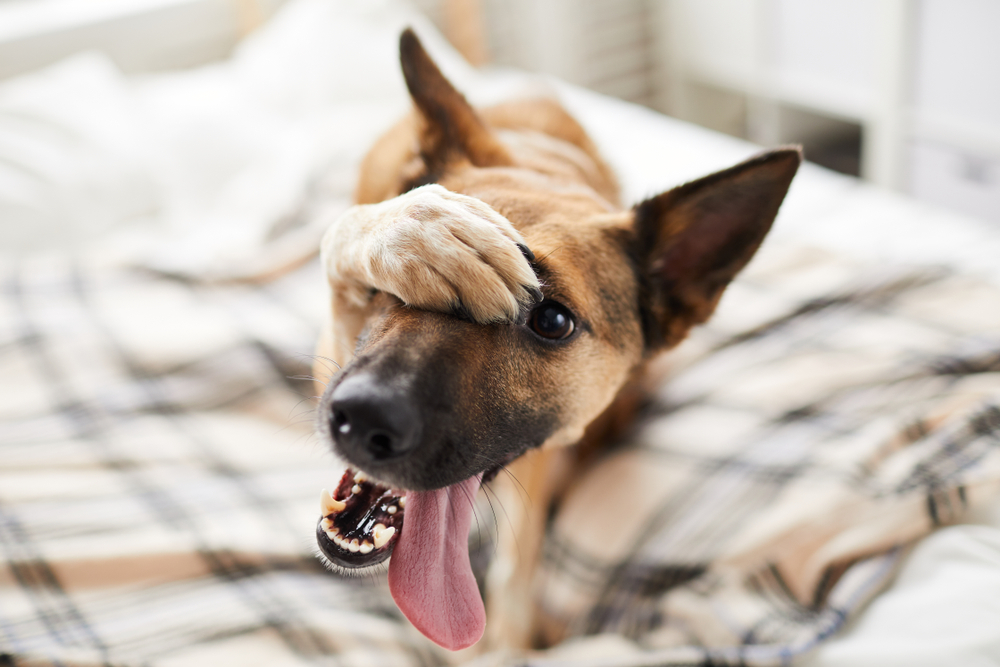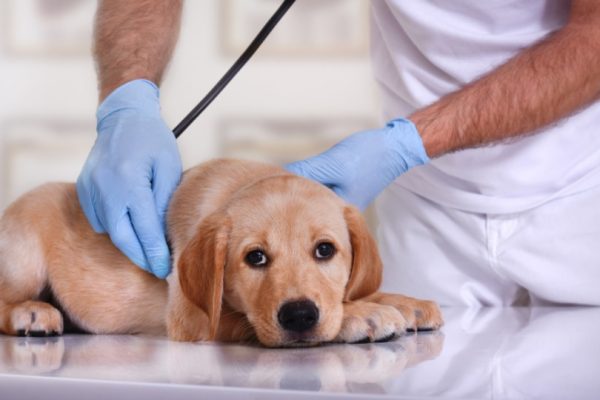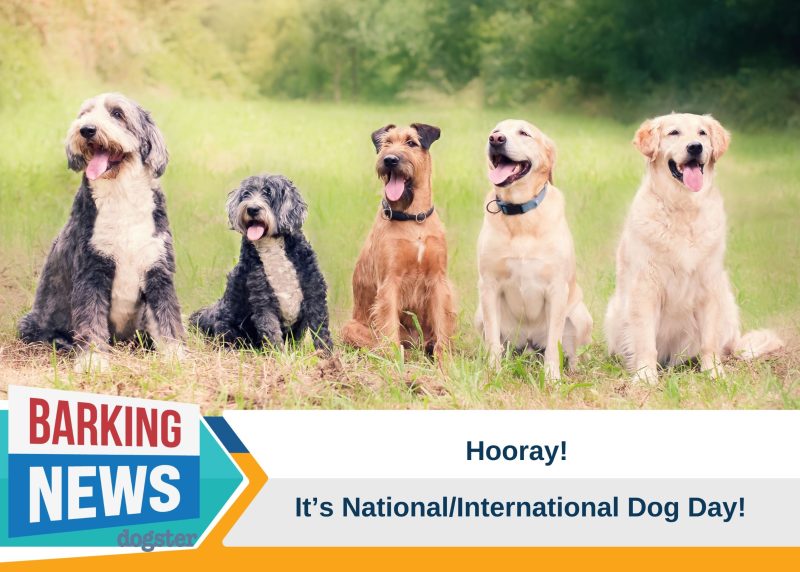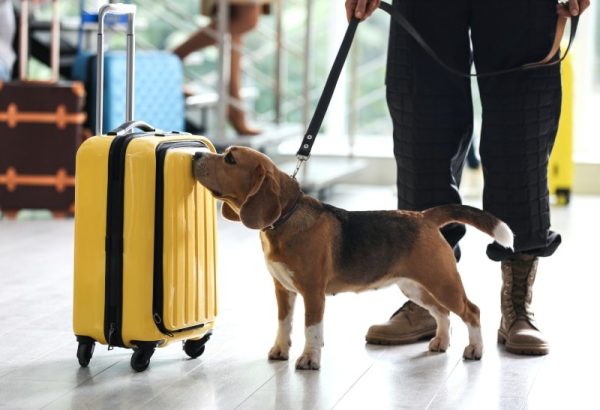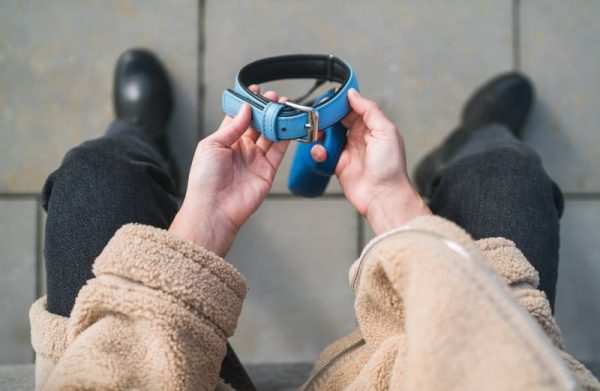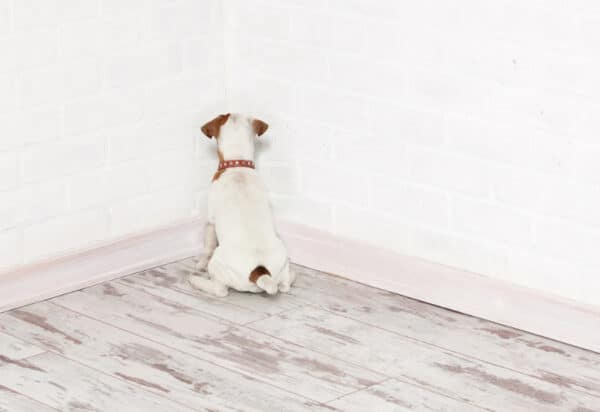In this article
If you have ever caught your dog doing something embarrassing, you are probably familiar with how embarrassed they seem to act afterward. They might struggle to maintain eye contact or pin their ears back and shy away from you. Of course, you might assume that your dog is feeling embarrassed in a similar way humans would. Although dogs can experience a range of emotions similar to humans, embarrassment is a complex emotion researchers don’t think dogs can feel.
This article will discuss whether dogs can get embarrassed or what emotions you might mistake for their embarrassment.

Can Dogs Feel Embarrassed?
By definition, embarrassment refers to a feeling of self-consciousness or awkwardness. We usually get embarrassed because we do something inappropriate in a social setting or feel self-conscious about our behavior or appearance. For example, think about the time you got a bad haircut and had to run errands afterward. You probably felt self-conscious around other people because of your hair mishap, or perhaps even secretly judged.
For dogs to truly feel embarrassed, they would need to be self-conscious and have a concern for social expectations. They would need to be self-conscious enough to think about how their behavior or appearance differs from normal social expectations, and which ones are unusual or inappropriate.
However, there is no evidence to support the idea that dogs can feel self-conscious and care about what people or other animals think about them. Furthermore, dogs do not have the same social expectations as humans, so what might seem embarrassing to us, is perfectly normal for dogs.
Therefore, it is unlikely that dogs can get embarrassed in the same way humans can or even experience such a complex emotion.

What Could Be Mistaken for Embarrassment?
Many dog owners are guilty of anthropomorphizing their dogs, simply because it helps us understand or connect with them better. We might attribute certain human emotions or experiences to our dogs and misinterpret their true canine behavior. This makes it easy to mistake our dog’s behavior for embarrassment when it could be an entirely different emotion, such as appeasement.
As we already touched on above, dogs do not have the same social expectations as us. What might seem like an embarrassing situation for us could be normal canine behavior.
Consider how your dog urinating on the couch in front of guests would not have a reason to be embarrassed as you would if it was you in your dog’s place. As a human, you know that urinating on the couch is not an appropriate behavior, especially in a social setting. However, dogs do not share the same social expectations as us.
It’s unlikely that your dog would feel self-conscious about urinating on the couch because they fear being judged by the guests like you would. Instead, they could show appeasement gestures like averting eye contact or pawing at you.
This is because they associate urinating on the couch as a behavior that could elicit a negative response from you. They fear your response, which could be a punishment or raised voice, rather than get embarrassed.
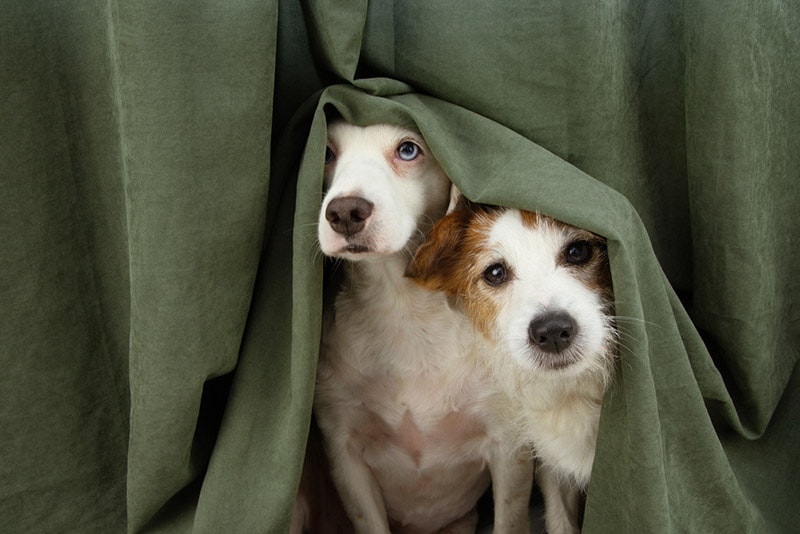
Can Dogs Feel Embarrassed for Other Dogs?
Although dogs can perceive another dog’s behavior and emotions, it’s unlikely that they can feel embarrassed on their behalf. If a dog has done something we deem embarrassing or inappropriate, other dogs might anticipate our negative response to the situation and display appeasement gestures.
They know that the other dog will receive a certain reaction from you, perhaps because they know it was a behavior worthy of punishment.

Conclusion
Embarrassment is a complex “self-conscious” emotion that dogs are unlikely to experience. Dogs do not follow the same social expectations or feel self-conscious as humans do to get embarrassed. The behavior and body language we might associate with embarrassment, such as averting eye contact, are actually appeasement gestures. Dogs can learn what behaviors get a negative reaction out of you and want to appease you.
Featured Image Credit: SeventyFour, Shutterstock

